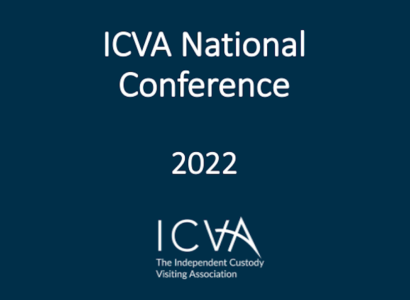Argh! Who else spent an hour pulling out their hair whilst watching 24 Hours in Police Custody last night? Those of you who were enjoying Love Island or football or otherwise can find the episode here. Feel free to watch and pull your hair out at leisure.
The episode focussed on a young man and his mental health. He initially came to the attention of police through a phone call that he made, raising some red flags, but the police we not able to make any traction with it. He later returned to police custody after his brother called 999 reporting that the young man had stabbed his mother.
From this point forward, the real struggles arise as a nurse, custody staff and police try to do what they can to figure out whether the young man has mental health troubles and what the best solution is. Here is where I start jumping up and down in front of the TV. The future of the man in question (will he be charged, can he be charged, should he be?) starts to rely on where public services are available to help him.
I shall not get into the complicated nature of mental health in police custody other than to say that, although the use of police custody as a place of safety under s136 is being curtailed by new legislation, we still see many problems. When, as in this case, someone is arrested then mental health needs are identified, we know that accessing the right care can be a problem and can take a long time.
It’s difficult to understand the full picture of this case within the confines of a one-hour show. However, Inspector Michael Brown has blogged on how police can respond. So…how can independent custody visitors help and what should they do if they encounter a similar situation? There is a lot. Please note that this is not about using police custody as a place of safety under s136 – that’s a different ball game. This is where someone is detained in police custody then suspected of having poor mental health and expert advice is required.
We always like to reiterate that independent custody visitors are members of the public, in place to give a public view on custody. If something feels wrong, report it. If you feel that something is done well, report it. Moving beyond that, you can:
When you arrive in custody
- Ask how many people who have / are suspected of having poor mental health are currently in police custody.
- Try to visit these detainees as a priority, vulnerable group of detainees.
During your visit
- Check on rights, entitlements and wellbeing as you would for any visit.
- Check whether the detainee has had timely access to an Appropriate Adult.
- Ask to see the custody record.
When looking at the custody record
- Check whether a mental health bed or assessment has been requested.
- If requested, note time and ask how long it is expected to take.
- Check the length of time that the detainee has spent in custody.
When completing your report
- Note how many detainees with / suspected of having poor mental health are in custody.
- Note how many of these detainees you were able to visit and reasons why you could not visit.
- Report on rights, entitlements and wellbeing as normal.
- Report on whether an Appropriate Adult has been requested and provided.
- Note if you have not been able to access the custody record and why.
If you have had access to the custody record:
- Note whether a mental health bed / assessment has been requested and how long this is likely to take.
- Note the length of time the detainee has spent in custody
What happens next? This is where the role of the scheme manager and the Police and Crime Commissioner (PCC), or other police authority body, kicks in. Scheme managers collate reports on mental health to highlight any problems, themes or strengths. These can be raised with local police staff and, can be resolved there. However, they may also need to be escalated. This information can be used by PCC when they meet with other public services to solve joint problems. Mental health is part of the core work of police and local arrangements can and have improved access to mental health services.
ICV findings also come to ICVA. We, as an organisation, report important themes and findings to our national partners. We have highlighted this problem with the Home Office, indeed have been in meetings where Inspector Brown has outlined the problem. Our Chair has written to ministers. This is a complex problem that will take time to solve, but our ICVs let us know what is happening on the ground and we share that with the highest decision making bodies. They, in turn, do their best to solve the problem.
My message to our ICVs is simple – you are a piece of the puzzle necessary to solve this problem. We need your perspective, your views, your experiences. You give us public insight onto what is occurring on the ground.
We will continue to support work to resolve waits for mental health care and we will continue to report on ICVs’ findings. In the meantime, this episode illustrates and explains the challenges we face. Until it is resolved, I know police colleagues who will be interrupted on dinners out and on holiday, and who will move mountains to try to access support for detainees like the young man in this episode.




